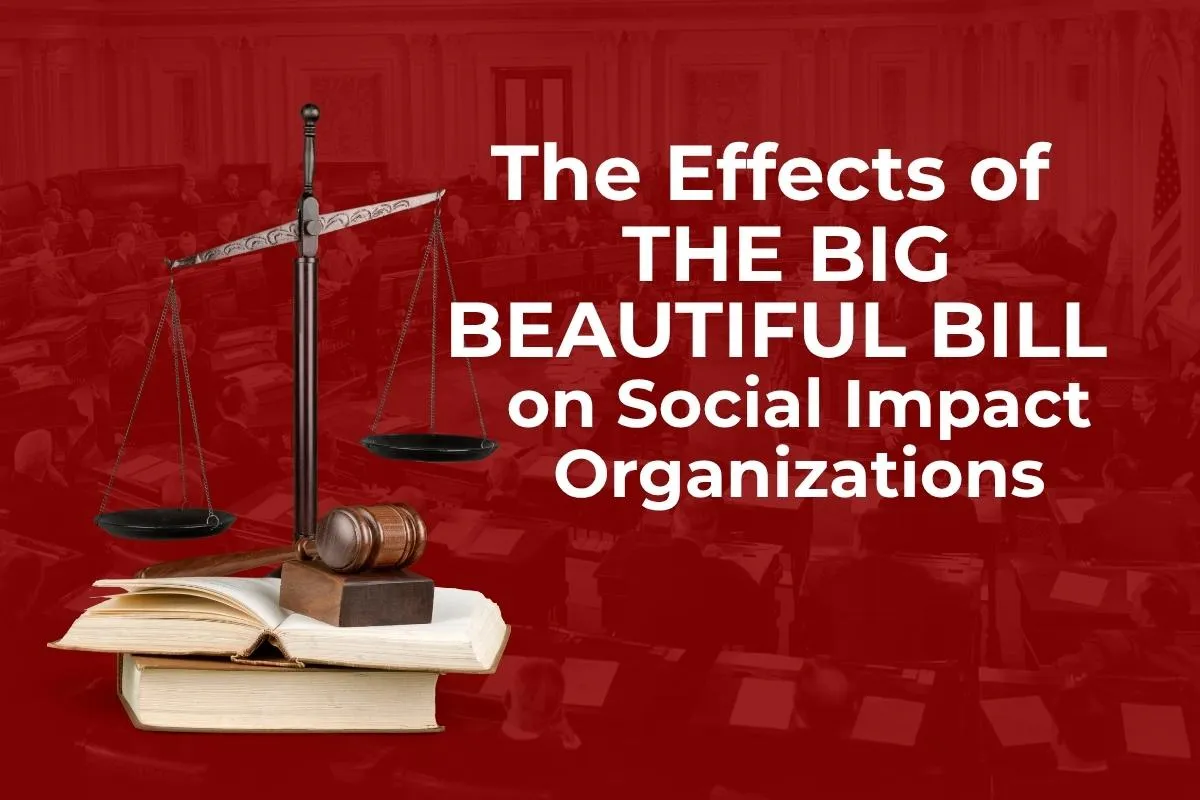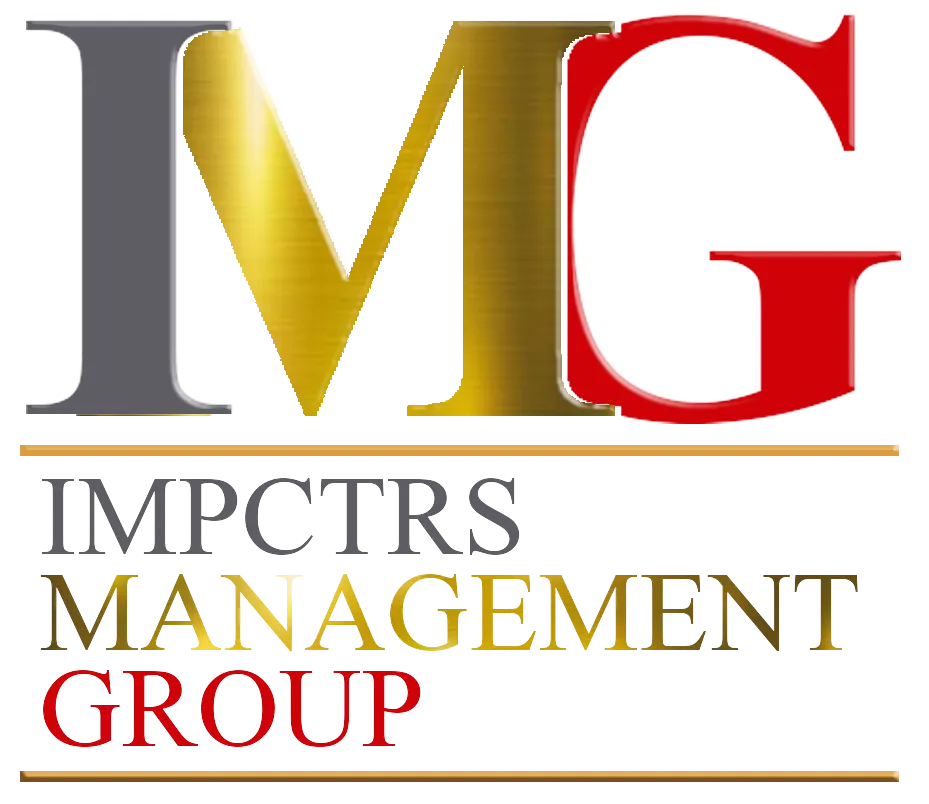See Our Latest Blogs
The Impctrs Management Group blog is where strategy meets action. We deliver powerful insights, practical strategies, and AI-driven solutions designed to help social impact businesses amplify their reach, fund their missions, and scale their operations sustainably. Every article is crafted to equip you with the knowledge and tools to lead with purpose and grow with confidence.

The Effects of The Big Beautiful Bill on Social Impact Organizations
How the One Big Beautiful Bill Act reshapes the landscape for nonprofits, faith-based organizations, and social enterprises
If you're leading a social impact organization right now, you're probably feeling like you're navigating a maze blindfolded. Between shifting donor behaviors, evolving tax laws, and changing government priorities, it's enough to make anyone's head spin. The recently passed One Big Beautiful Bill Act (OBBBA) adds another layer of complexity, but here's the thing: it's not all doom and gloom.
Think of this legislation as a double-edged sword. On one side, it opens doors to new giving opportunities that could democratize charitable donations. On the other hand, it fundamentally shifts how we think about funding sources and delivery services. Let's break down what this means for your organization and, more importantly, how you can adapt to thrive in this new landscape.
The Good News: More People Can Give (And Will Want To)
Here's something to celebrate: the OBBBA has essentially rolled out the red carpet for everyday donors. Remember how only people who itemized their taxes could deduct charitable contributions? Those days are over. Now, individuals taking the standard deduction can deduct up to $1,000 in charitable gifts, and married couples can deduct up to $2,000.
Why does this matter? Because nearly 90% of taxpayers take the standard deduction. We're talking about unleashing the giving potential of millions of middle-income Americans who previously had zero tax incentive to donate. This is particularly exciting for faith-based organizations, where the bulk of giving comes from regular congregants rather than wealthy donors.
The legislation also makes permanent the 60% adjusted gross income (AGI) limit for cash gifts to qualified charities—a provision that was set to expire. This consistency gives donors and organizations alike the ability to plan with confidence.
The Reality Check: High-End Giving Gets Complicated
Now for the more challenging news. If your organization has relied heavily on major donors or corporate partnerships, you'll need to recalibrate your strategy. The OBBBA introduces some significant hurdles for high-income giving.
Starting in 2026, the tax benefit for charitable deductions will be capped at 35% for those in the top tax bracket. Additionally, itemizers can only deduct charitable contributions that exceed 0.5% of their AGI. For corporations, the math gets even trickier—they can only deduct charitable gifts that exceed 1% of their taxable income, with total deductions capped at 10% annually.
What this means in practical terms: a wealthy donor who used to get a substantial tax break for their $100,000 donation will see significantly reduced benefits. Similarly, corporations that made smaller, strategic gifts throughout the year may find those contributions no longer qualify for deductions.
The silver lining? Many high-net-worth donors are likely to accelerate their giving before the end of 2025 to maximize current tax benefits. If you're in a capital campaign or planning a major fundraising push, the next few months could be golden.
The Storm Clouds: When Government Steps Back, Nonprofits Step Up
Perhaps the most significant long-term impact of the OBBBA isn't what it gives to the nonprofit sector, but what it takes away from public programs. The legislation projects nearly $1 trillion in Medicaid cuts and $186 billion in food assistance reductions over the next decade.
Let that sink in for a moment. We're looking at an estimated 11-12 million people losing health coverage and 3 million losing food assistance. For organizations working in healthcare, housing, and food security, this translates to dramatically increased demand for services precisely when funding mechanisms are becoming more complex.
Special Considerations for Different Organization Types
Faith-Based Organizations: Positioned for Growth
Faith communities stand to benefit significantly from the expanded deduction for non-itemizers. Most church giving comes from regular members who don't itemize taxes, so this change could genuinely boost congregational giving.
However, faith-based organizations that operate social services should prepare for increased demand as government programs contract. Many churches and faith-based nonprofits serve as safety nets in their communities, and that role is about to become more critical than ever.
Large church-affiliated institutions should also be aware of new excise taxes on substantial endowments, similar to those affecting universities.
Social Enterprises: Business Benefits with Mission Challenges
Social enterprises operating as for-profit entities may actually benefit from several business-focused provisions in the OBBBA. The bill expands Qualified Small Business Stock (QSBS) exclusions and offers enhanced tax breaks for employee benefits like student loan repayment assistance.
However, social enterprises working in areas affected by program cuts—healthcare, housing, employment services—will face increased demand for their mission-driven work, even as traditional funding sources become more constrained.
Strategic Adaptations for the New Landscape
Diversify Your Donor Base
The math is clear: you need to broaden your appeal beyond major donors. This is actually an opportunity in disguise. Building a larger base of smaller donors creates more sustainable funding and deeper community engagement.
Consider developing giving societies that celebrate donors at the $500, $1,000, and $2,000 levels—amounts that align with the new deduction limits. Make it easy for these donors to understand and claim their tax benefits.
Reimagine Corporate Partnerships
With corporate giving deductions becoming more restrictive, traditional corporate donation requests may yield diminishing returns. Instead, explore partnerships that provide mutual value: employee volunteer programs, skills-based volunteering, or cause marketing campaigns that align with business objectives.
Strengthen Your Advocacy Voice
As public funding contracts, your voice in policy discussions becomes more crucial. Document the increased demand you're seeing and share those stories with elected officials and the media. Your frontline experience provides invaluable data about the real-world impacts of policy decisions.
Build Collaborative Networks
Consider forming giving circles or collaborative funding arrangements with other organizations. Pooled resources can be more attractive to donors and more efficient for addressing complex social challenges.
The Financial Reality: A $7 Billion Question
Here's the bottom line in stark numbers: while expanded charitable deductions are projected to generate $74 billion over ten years, reduced incentives for high-income and corporate donors may cost the nonprofit sector $81 billion over the same period. That's a net loss of $7 billion.
This doesn't mean the sky is falling, but it does mean we need to be smarter, more strategic, and more collaborative than ever before.
Looking Forward: Adaptability as a Superpower
The OBBBA represents both the challenge and the opportunity facing social impact organizations today. Yes, the rules are changing. Yes, some traditional funding sources will become more difficult to access. But we're also seeing the democratization of charitable giving and new incentives for everyday donors to get involved.
The organizations that will thrive in this new environment are those that view change as an opportunity for innovation rather than just a problem to be managed. They'll build broader, more diverse donor bases. They'll find creative ways to demonstrate impact that resonates with both individual donors and business partners. And they'll use their unique position as community leaders to advocate for the people they serve.
Most importantly, they'll remember that while funding mechanisms may change, the need for their work hasn't diminished—if anything, it's grown. The communities you serve are counting on your ability to adapt and continue providing critical services and advocacy.
The Big Beautiful Bill isn't just changing tax law; it's reshaping the entire social impact ecosystem. The question isn't whether you can afford to adapt to these changes—it's whether you can afford not to.
Ready to navigate these changes with confidence? At Impctrs Management Group, we help social impact leaders develop strategies that turn challenges into opportunities. Let's talk about how your organization can thrive in this new landscape.

Transform your membership into your competitive advantage!
The IMPCTRS Hub is your all-in-one platform for sustainable growth and impact scaling. As a member, you gain access to:
GROWTH RESOURCES
Revenue Generation Tools: Templates, guides, and frameworks
Compliance Library: Stay updated with latest regulations
Impact Measurement Systems: Track and report your success
Operational Toolkits: Streamline your organization
COMMUNITY POWER
Peer Learning: Connect with successful impact leaders
Expert Network: Access specialists and advisors
Collaboration Opportunities: Find partners and supporters
Funding Connections: Meet impact investors and donors
VISIBILITY & RECOGNITION
Media Features: Showcase your impact
Speaking Opportunities: Share your expertise
Success Stories: Highlight your achievements
Partnership Possibilities: Expand your reach
SUCCESS STORIES
LISA, a small business owner who hit her first big revenue goal last year. While she was thrilled with the immediate results, her business hit a plateau shortly after. After working with us, Lisa realized that while she was celebrating profits, she wasn’t reinvesting them wisely. She developed a reinvestment plan that focused on upgrading her marketing strategy and improving customer retention systems. Within a few months, her business not only broke through the plateau but began generating consistent, long-term profits.
MIKE, a digital marketing consultant who was spending hours each week managing his social media and handling client billing. He knew these tasks weren’t his strengths, but he thought doing them himself would save money. After burning out, Mike decided to outsource both areas. The result? His business became more streamlined, he regained hours each week to focus on client strategy, and his overall revenue increased by 20% within six months. The key wasn’t working harder—it was outsourcing smarter.
SARAH, one of our clients. She started out with a brilliant idea for an online course but struggled to launch it because she didn’t feel “expert enough.” After working with us, she faced her impostor syndrome head-on. We helped her focus on her strengths, refine her course, and launch with confidence. Within six months, she not only filled her course but also started attracting speaking engagements—all because she chose to move forward despite her doubts.
WHY CHOOSE
Proven Expertise:
• Successfully guided 100+ organizations
Compliance Focus:
• Keep your status while growing revenue
Comprehensive Support:
• Strategy through implementation
Community Power:
• Access to vast impact network
IMG: Where Purpose Meets Prosperity
JOIN OUR MAILING LIST

Contact Us

Ready to transform your impact into sustainable revenue?
GET STARTED TODAY!
General Inquiry: [email protected]
Strategic Inquiries: [email protected]
IMPCTRS Hub: [email protected]
Speaking & Training: [email protected]
BUSINESS HOURS:
Monday -Thursday
9:00 AM- 5:00 PM EST
Phone: 888-429-5094
Address: 830 N John Young Parkway
Kissimmee, FL 34741
